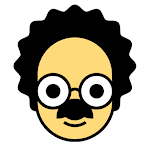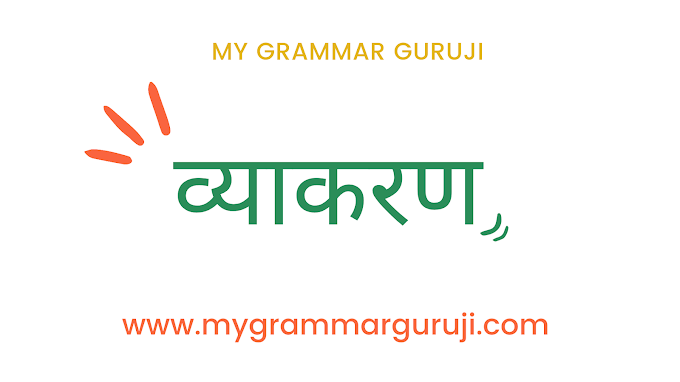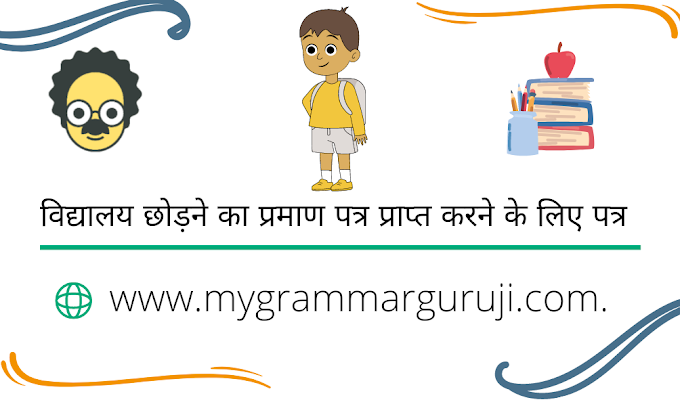The words a, an and the are called the articles.
1. An (Indefinite Article) is used when the next word begins with a vowel sound (a, e, i, o, u).
AN का उपयोग तब किया जाता है जब अगला शब्द स्वर ध्वनि (ए, ई, आई, ओ, यू) से शुरू होता है।
For example :-
- an apple
- an elephant
- an umbrella.
2. A (Indefinite Article) is used when the next word begins with a consonant sound (b.c, d, f, g, h, j, k etc).
जब अगला शब्द एक व्यंजन ध्वनि से शुरू होता है|
For example :-
- a book
- a table
- a clock
Exceptional Cases
(i) Sometimes the letter 'u' gives the sound of 'u' instead of 'a' which is a consonant and consonant vowel. Only 'a' is replaced with 'an' with such words as a utensil, a university student etc.
कभी-कभी 'U' letter (वर्ण) 'a' के स्थान पर 'u' की आवाज़ देता है,जो एक व्यंजन है। तब 'An' को ऐसे शब्दों के साथ 'A' के साथ बदल दिया जाता है, जैसे : a utensil, a university, a European, a uniform, a united.etc.
(ii) Letter o 'sometimes gives the sound of' w 'instead of' o 'which is a consonant sound, so even with such words' an' is replaced by 'a', such as a one rupee note; a one eyed man etc.
वर्ण "O" कभी-कभी 'o' के स्थान पर 'w' की आवाज़ देता है जो एक व्यंजन ध्वनि है,तो ऐसे शब्दों के साथ 'An' को 'a' द्वारा प्रतिस्थापित किया जाता है, जैसे a one rupee note; a one eyed man etc.
(iii) Some words begin with consonant letter. But when speaking them, vowel sounds first - with words like 'an' instead of 'a', like an M.P., an M.A. etc.
कुछ शब्द व्यंजन वर्ण से शुरू होते हैं, लेकिन जब उन्हें बोलते हैं, स्वर पहले लगता है - शब्दों के साथ जैसे an M.P., an M.A. etc.
(iv) In some words starting with 'ho', 'h is silent', the sound beginning with 'a vowel sound', 'an' is used in front of them, such as an honest man, an hour. etc.
'Ho' से शुरू होने वाले कुछ शब्दों में, 'H बोला नहीं जाता' इसका उच्चारण 'एक स्वर ध्वनि' के साथ शुरू होता है, तब उनसे पहले an प्रयोग मे लाया जाता हैँ, जैसे an honest man, an hour. etc.
3 The (Definite article) use with that is unique or there is only one.
- the sun
- the moon
- the internet.
3.1.When talks about the same noun.
- I bought a shirt. The shirt is red.
3.2.Directions (cardinal points).
- the west
- the east
- the north
- the south
3.3. Before the names of:
(a) Newspapers (समाचार पत्र) : The Hindustan Times, The Indian Express etc.
(b) Religious books (धामिक पुस्तकें) : The Ramayana, The Geeta, The Bible, The Quran etc.
(c) Rivers (नदियाँ): The Ganga, The Yamuna, The Krishna etc.
(d) Seas (समुन्द्र) : The Pacific Ocean, The Indian Ocean etc.
(e) Mountain range (पर्वत शृंखला) : The Himalayas, The Shivalik Hills etc.
(F) Historical monuments (ऐतिहासिक स्मारक): The Taj. The Red Fort, The Qutab Minar etc.
(g) Factories and banks (फेक्टरियाँ तथा बैंक) : The Birla Mills, The Punjab National Bank, The State Bank of India etc.
(h) Dates of months (महीनों की तिथियाँ) : The 2nd of October etc.
(I) Trains/Ships (रेलगाड़ी/जहाज) : The Janta Express. The Vikrant etc.
(J) Political Parties/Organisations (राजनीतिक दल /संस्थाएं) : The Congress, The UNO. The Red Cross Society etc.
(K) Name of Nations and communities (राष्ट्रों और समुदायों के नाम) : The hindu, The German, The English society.
(L) The name of the directions, when they have kept the first preposition (दिशाओ के नाम से पहले जब इनमे पहले preposition दे रखा हैँ) : The sun rises in the east and sets in the west.
(M) Big posts (बड़े पदों) : The Prime minister of India, The President of India. The Governor, The Elections commissioner Etc.
(N) Morning, Afternoon, Evening, When they do not give Last, Next, or Every Word,,(Morning, afternoon, evening से पहले जब इनसे पहले last, next, या every word ना दे रखे हो) :
- I get up early in the morning.
- He comes to meet in the evening.
(O) The Date (तिथि से पहले) : India became free on the 15th of August 1947.
(P) The Superlative Degree : The most intelligent girl.
ADVANCE ENGLISH GRAMMAR RULES FOR USE OF "THE"
("The" के उपयोग के लिए अग्रिम अंग्रेजी व्याकरण के नियम)
(Q) Before that singular noun, which describes the whole caste and the tells Specialty. (उस singular noun से पहले जिसका प्रयोग पुरी जाति का बोध करता हैँ और विशेषता बताता हैँ) :
- The lion is a fierce animal,
- The child is smart,
- The dog is a faithful animal.
Exception (अपवाद) :
- Man is mortal.
- Mankind should love nature.
(R) Proper Nouns while making plural (Proper nouns का बहुवचन बनाते समय) : The sawariyas ,The aggarwals, The sharmas, etc.
(S) Proper Nouns before which is used as Common Noun (Proper nouns से पहले जो common noun के रूप मे प्रयोग किए गए है) :
- Kalidas is the Shakespeare of India.
- Kashmir is the Switzerland of Asia.
(T) Before those words that have been mentioned earlier and to indicate (उन words से पहले जिनका उल्लेख पहले किया गया हो और संकेत देने के लिए) :
- There was a king.
- The king was very brave.
- I know the man came here last night.
(U) Before adjective + proper noun :
- The little shilpa is a shy girl.
- The handsome boy is coming towards you.
(V) Those adjective which are used in the form of noun (उन adjective से पहले जो noun के रूप मे प्रयुक्त होते हैँ) : The rich, the poor, the brave, the injured etc.
(W) If an adjective is installed after the noun then before adjective (यदि किसी adjective को noun के बाद लगा दिया जाए तो उस adjective से पहले) : Ashoka Was the great king.
(X) Before comparative degree if they are not given than ahead of them. (Comparative Degree से पहले यदि उनके आगे than नहीं दे रखा हो) : she is the Wiser of the the two.
(Y) After All and Both and Before Whole and Same (All और both के बाद और whole और same से पहले) :
- All the boys were making a noise.
- Both the girls are pretty.
- The whole class was absent.
- Their ages are the same.
(Z) Before words which describes the Method and way. (विधि और तरीका बताने वाले शब्दों से पहले) : By the meter, by the kilogram, by the dozen etc.
PRACTICE EXERCISE.
Put 'a', 'an' or 'the' in the following blanks and complete the sentences :
1. I took bath in ____Ganga.
2. He is ____M.A. while his wife is____ B.A., B.Ed.
3. I met ____university student in____ bus. ____books he was carrying were very heavy/big.
4. I gave ____hungry beggar____orange,____banana and____glass of milk.
5. His uncle is____M.P., father____doctor and mother____university teacher.
6. ____Kalka Mail come____ hour late.
7. There was ____big queue of taxies outside railway station.
8. ____milk he was drinking was very sweet.
9. It is ____popular belief that____apple ____ day keeps____doctor away.
10. Sonia Gandhi is____ President of____Congress Party.
11. ____honest man will never cheat you.
12. I returned him____story-book that he gave me to read.
13. My father reads____ Hindustan Times and not____ Indian Express.
14. ____boy you saw in my brother. He is ____Kapil Dev of our Cricket Team.
15. ____Indians are very friendly people.






Follow us on telegram for more quizzes and practices.
ReplyDelete